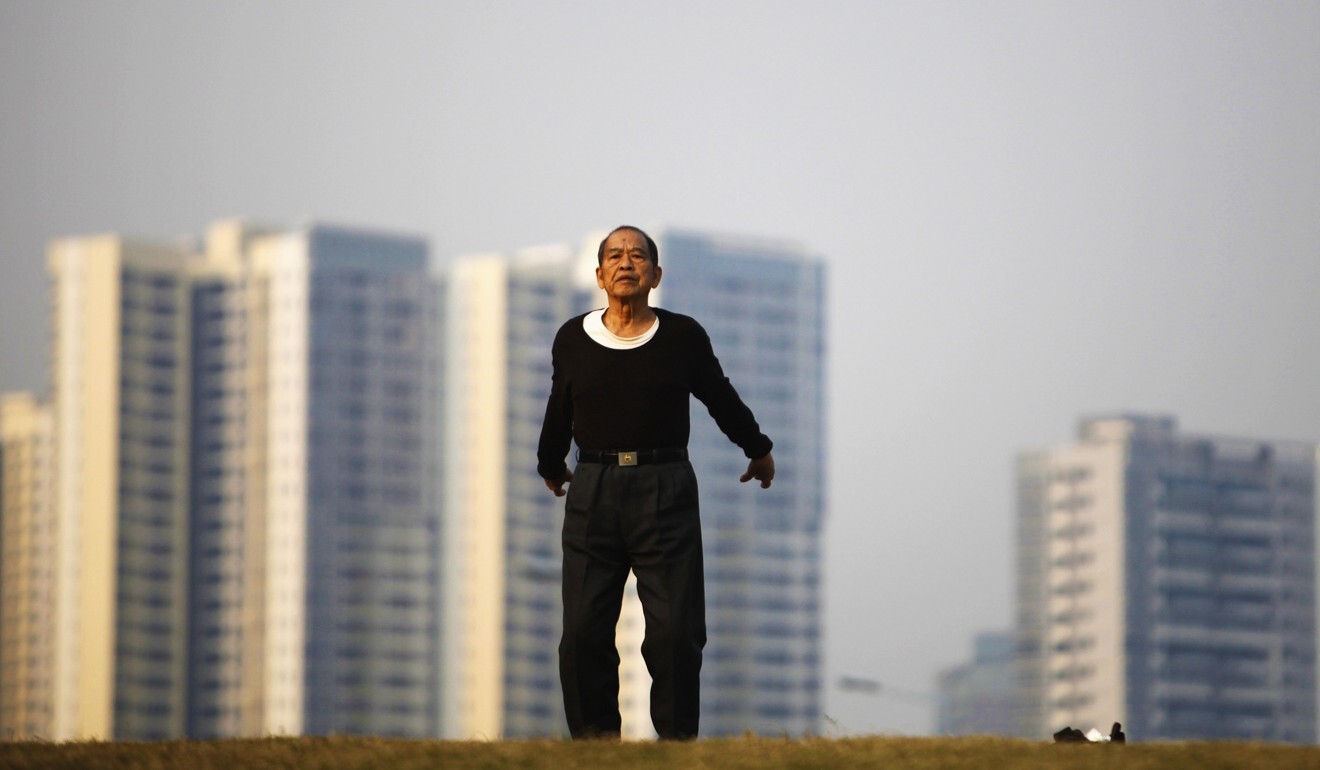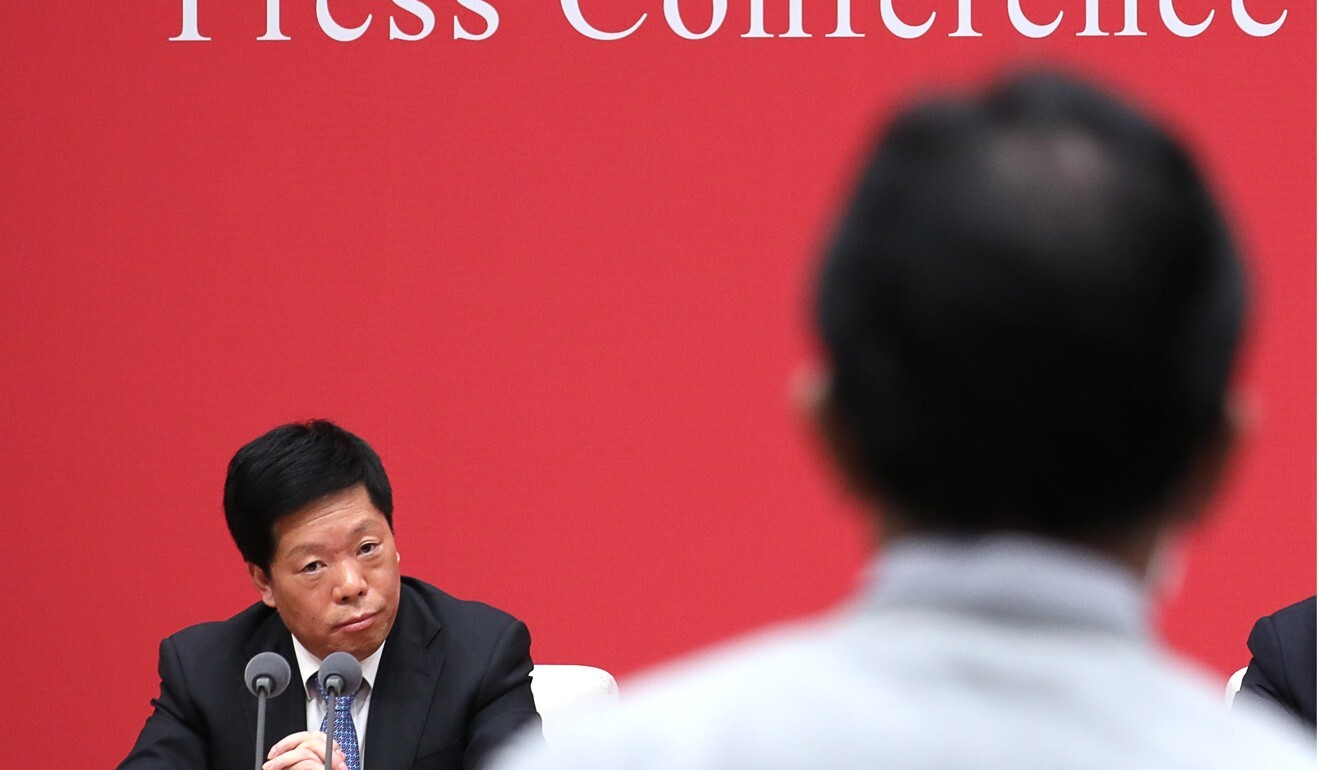
Deal paves way for Hong Kong residents to buy homes, educate children with ease in Greater Bay Area
- City leader Carrie Lam and Guangdong provincial governor sign agreement covering 57 measures to boost integration
- Under the pact, Hongkongers will be able to open personal bank accounts over the border without leaving the city
Hong Kong residents will find it easier to buy homes and send their children to public schools in Guangdong province in mainland China under a broad deal signed by top officials on Friday.
The pact also lowers the entry barrier for Hong Kong service firms to do business in the province and pledges to look at easing restrictions on opening personal bank accounts remotely.
Hong Kong Chief Executive Carrie Lam Cheng Yuet-ngor signed the 2020 Work Plan with Guangdong Governor Ma Xingrui through an exchange of letters.

It came a day after the end of the Communist Party’s fifth plenum, a four-day meeting of top decision-makers that charted the nations’ economic and political course for the next five years, with technological advancement at its core, according to a communique released on Thursday.
The work plan spans eight areas, ranging from transport, technology, financial and professional services, to education and policies for the youth.
“The measures aim to further facilitate exchanges between residents of Hong Kong and Guangdong … take forward developments in innovation and technology, as well as strengthen cooperation in various sectors and industries,” a spokesman for the city government said.
Earlier on Friday, Han Wenxiu, a deputy director of the Central Financial and Economic Affairs Commission, said the central government would help Hong Kong strengthen its “unique advantages” as an international city.
Chinese President Xi Jinping this month called on Shenzhen to become the “engine” of the Greater Bay Area during a visit marking the 40th anniversary of the establishment of the special economic zone.
Lam met business and professional groups via video ahead of her upcoming mainland trip that will take her to Beijing on Wednesday to seek support for strategies accelerating local economic recovery. She is also due to meet officials in Shenzhen and the Guangdong provincial capital of Guangzhou.
Under the work plan, Hongkongers will be allowed to open accounts in the Greater Bay Area without having to visit the mainland. Currently, Bank of China is the only lender offering such services.
Hong Kong lawyers can soon earn qualification to practise in Greater Bay Area
The measures include simplifying loan procedures for residents seeking to purchase homes in the region. Previously, Hong Kong buyers could only apply to mainland Chinese banks for mortgages.
But since early July, at least six local lenders have offered cross-border mortgages, with buyers applying at the branches and allowed to pay in Hong Kong dollars.

“Any relaxation of cross-border mortgage services will encourage more Hongkongers to buy property in the Greater Bay Area as mortgage rates of Hong Kong banks would be lower than those offered by mainland lenders,” said Ivy Wong, managing director of Centaline Mortgage Broker.
To improve transport flows, the two governments vowed to make it easier for vehicles to use the Hong Kong-Zhuhai-Macau Bridge and keep the Shenzhen Bay border checkpoint open 24 hours a day.
Beijing to push Hong Kong’s ‘unique advantages’, help connect with globe, mainland
Authorities will also refine policies on providing free education and examinations for Hong Kong children who have moved to Guangdong with their parents. The two sides also vowed to develop a joint pandemic prevention and control mechanism.
“International schools in Shenzhen and Guangzhou are unaffordable for ordinary Hong Kong families in Guangdong,” Ng said. “But these families do want their children to be integrated into the mainland education system and study in public schools.
“Homes are also necessary for those working or retiring in Guangdong. But it’s difficult now for them to open bank accounts and get mortgages.”

By the end of last year, 538,000 Hong Kong residents were living in Guangdong, according to the latest data from the Census and Statistics Department.
The deal also expands on an existing arrangement allowing Hong Kong civil servants to work in major mainland cities including Beijing and Shanghai. The programme will now cover the nine Greater Bay Area cities over the border.
How does Hong Kong stay relevant in China’s new technological era?
Leung Chau-ting, chairman of the Federation of Civil Service Union, welcomed the measure. Under the current system, exchanges are largely restricted to senior grade officials.
“It’s good for officials of different levels to have more exposure on the mainland,” Leung said. “But at same time, the government has to make sure public money is well spent on those tours.”
Lau Siu-kai, vice-president of the semi-official think tank the Chinese Association of Hong Kong and Macau Studies, said it was a “good start” for the two governments since they managed to agree on the work plan soon after the plenum ended.



